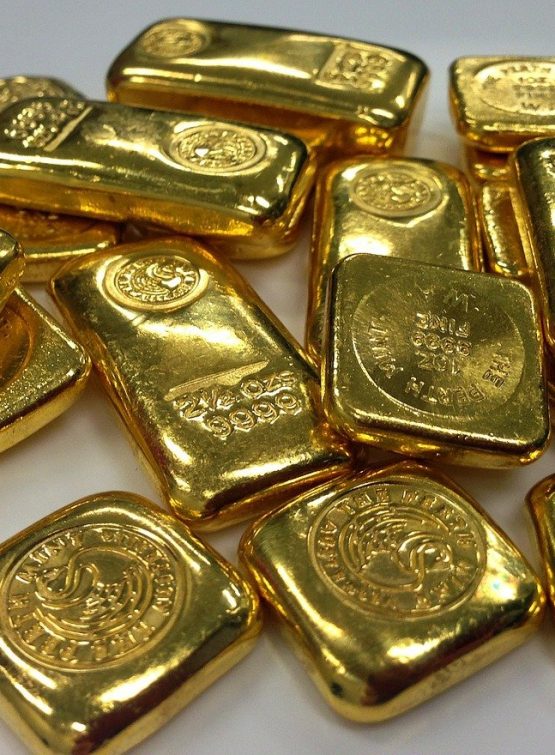Overview:
In the last article, we have discussed what factors could encourage investment in Gold. The main reasons why Gold is a must in everyone’s portfolio are:
- Diversification
- High Evaluations in the Stock Market
- The Currency dilution or debasement
- Low-Interest rates
I explained the first three cases in my previous column. Let us see the last one.
Low-Interest rates:
How do we check interest rates? In India, we find many private lenders lending money at a high-interest rate. In my native state, Telangana, the minimum interest rate among private lenders is 2% to 3% per month on the principal. This is unofficial and should not be considered in our calculation.
Nowadays, any registered bank would offer a personal loan to customers at around 12% to 18% per annum depending on whether the borrower is employed or self-employed. Usually, the interest rates are higher for self-employed and small business people.
Central banks decide and implement the minimum interest rates all over the world. For instance, Federal Bank or FED decides the interest rates in the US. In India, it’s under the control of our central bank, Reserve Bank of India (RBI). As of December 2020, the minimum interest rate on savings is 2.75%. For a fixed deposit, it is hovering between 5% and 6% per annum. This may vary depending on the term of your deposit like 1 year, 5 years, 10 years, etc.
But, amongst all, the interest rate on a 10-year Government Bond is most important. As of 18/12/20, it is 5.96%. We can also call it a Bond Yield of 5.96%. It means, if you purchase this bond, you will get ₹5.96 per ₹100 every year till its maturity.

We know that every government in the world is busy printing the currency and offering fiscal and monetary stimulus to corporations and people whose businesses are affected by lockdowns imposed to tackle Covid-19. This ultimately leads to more and more currency available for fewer goods, a perfect recipe for Inflation.
Consequences of Interest rates:
Under normal circumstances, the central bank raises interest rates when inflation gets higher. It is a measure to slow down the economy when it is growing at a stronger pace than required. Inflation, in such a scenario, is due to the growing demand for goods, services, and manpower. If you observe, there are many instances where the central bank raises interest rates and stock markets tumble on that news.
Whenever the interest rates increase, investors shift their wealth towards fixed assets like Bank Deposits, Government Bonds, and Corporate Bonds. There is no reason for an investor to buy risky assets like stocks when the interest rates are higher. It is better to buy bonds that pay good interest with 100% of the capital being safe. Obviously, capital invested in stock markets is not 100% risk-free.
Similarly, high-interest rates mean very negative news for commodities like Gold. Why would anyone buy a nonperforming asset that pays nothing? The one way purchasing gold could benefit you is when interest rates are lower. Another reason is high inflation in the economy.
Under regular circumstances, where the currency supply increases at a steady rate and the economy developing at a steady-state, inflation also hikes. To control inflation, the central bank increases interest rates. This comes under conventional policies adopted by central banks.
Why Gold Now?
If the interest rates are high, banks cannot lend in these critical times. Remember, high-interest rates are for controlling excessive growth in the economy which leads to Inflation. The excessive stimulus packages would ultimately result in inflating goods and services in the coming future.
Even though the inflation rate is rising day by day, raising the interest rates is a difficult task for the central banks. If the interest rates won’t rise, the investors find the fixed-income assets like bonds, treasuries, and bank deposits less attractive.

You can ask, lower interest rates mean very positive for stock markets. Yes, indeed that has been the main driver of the raging stock markets since April this year. Fundamentally, stock markets thrive in shiny economic conditions. There is no need to say the global economy is nowhere near shining.
Stock Markets are also leading indicators of the economy, which means most of the economic growth for the next year might have been factored in the prices already. If the central banks sort to raise the interest rates, it would be a bad news for the stock markets.
Summarizing all the facts, elated Stock Markets, Currency Debasement, High Inflation, altogether points to an alternative asset. Some of you might question, “What about Real Estate?” As far as I know, Real Estate is more expensive than stock markets currently. It requires huge capital compared to any other asset. A double bedroom flat in an apartment in my locale is over ₹5,000,000. Forget about an independent house that costs more than ₹1.5 crores, up 200% in the last three years.
After putting all these details together, I could conclude that Gold is a mandatory asset that is to be included in every investor’s portfolio. If you don’t agree with me, you have to do what our central bank, The Reserve Bank of India, is doing. RBI is expanding gold reserves from 7% to 10% of its total reserves. You can find the link to a column from the Times Now website.
Conclusion:
In the next article, we shall examine all the fundamental and technical aspects of the gold price to reach new all-time highs. There will be many critics who disagree with me. So I will highlight two points.
- Since 2000, Gold has risen from 280 dollars to 1890 dollars as of the current price, a CAGR of 10% per annum. During the same period, Dow has advanced from 11520 to 30180 with a CAGR of 4.93% per annum.
- Gold prices soared from 1000 dollars in 2008 to 1900 dollars in 2011 when a similar stimulus package or quantitative easing was started. Why would it not happen again now?
Disclaimer:
I provide the information and my views on the website only to educate new investors, stock market enthusiasts, and the common public on equity and other market investments. Please consult your financial adviser before making any investments in the stock or commodity markets. In case of any queries, you can contact me or email: admin@valueinvestingonline.in.





2 Comments